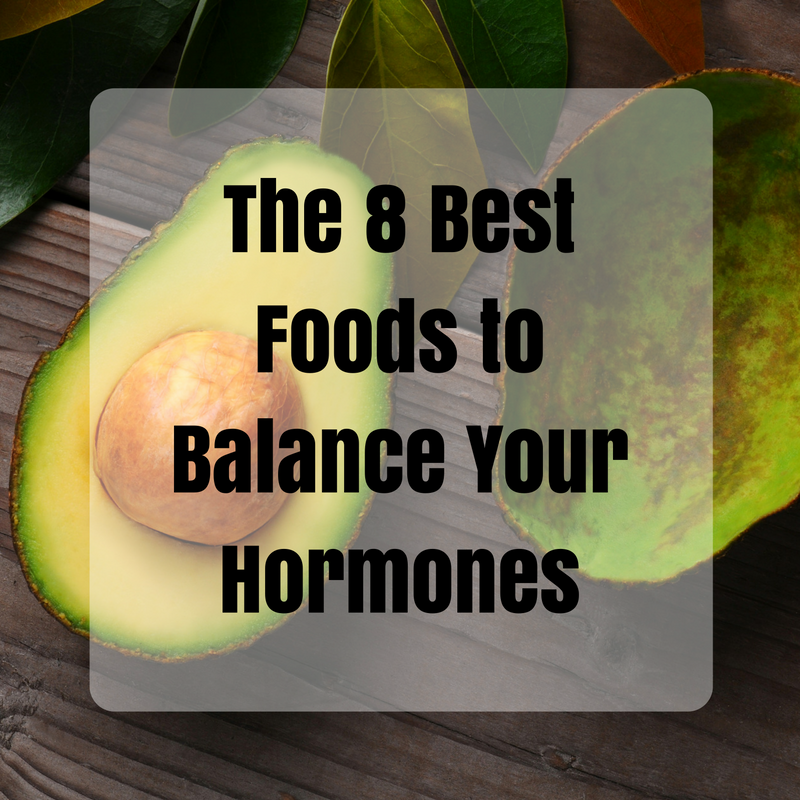 The main question I get asked is “So…is it my hormones?” This is closely followed by questions about food and hormones. Such as “what foods affect what hormones?”, “How can I use whole foods to balance my hormones?” and “Are there any foods I need to avoid or eat more of?”
The main question I get asked is “So…is it my hormones?” This is closely followed by questions about food and hormones. Such as “what foods affect what hormones?”, “How can I use whole foods to balance my hormones?” and “Are there any foods I need to avoid or eat more of?”
Click below for the downloadable PDF 8 Best Foods to Balance Your Hormones. Take the PDF with you to the supermarket and make shopping easier.
Let Your Food be Your Medicine and Your Medicine Be Your Food
It seems we are all very interested in the healing power of foods and how we can use food as medicine to improve our health. This has been a topic of research and communication in healthcare and medicine from time immemorial. Hippocrates (460-370 BC) a physician from Ancient Greece who is still considered one of the most outstanding figures in the history of medicine said it best: “Let your food be your medicine and your medicine be your food.”
Making sure your diet is well-balanced and that you feel free around food is most important. Restricting the foods you eat can lead to feelings of deprivation and trigger food cravings. The best approach is to look at your diet and the foods you currently eat and ask yourself: “What is working well here?”
Once you have identified what is working best for you, see if you can fine-tune your diet by including more of the foods I’ve written about below. These foods are fantastic to include in your daily routine for their ability to support healthy hormones.
1. Linseeds
Linseeds (otherwise known as flaxseeds) contain a phytoestrogen called lignan that can help to balance your estrogen levels. They can also potentially reduce your risk of developing hormone-related cancers. Linseed is also a great source of soluble fibre and can help to treat constipation. It is an excellent vegetarian source of omega 3 essential fatty acids that help to reduce inflammation in the body. One to two tablespoons of ground linseed daily can be a very helpful addition to your diet.
2. Chia seeds
Chia seeds are also a dietary source of lignans (although lower in concentration than flaxseed), essential fatty acids and soluble fibre. These nutrients are important for reducing inflammation which can lead to hormonal imbalances over time. They are also important for effective hormone production
3. Avocado
Avocados contain high levels of monounsaturated fats, fibre and fat-soluble vitamins like Vitamin E. They are an excellent food source of carotenoids from which the body can make Vitamin A. Avocados also contain certain plant sterols that can block the estrogen receptors in our cells and reduce estrogen absorption rates.
4. Certified Organic Coconut Butter
Certified organic coconut butter is an excellent source of saturated fat, an essential nutrient for progesterone production. It also contains lauric acid, which is incredibly healing to the skin and extremely beneficial for hormonal production. Lauric acid has additional anti-viral/anti-bacterial properties, provides a quick source of energy, is easy to digest, and may support metabolism.
5. Certified Organic Grass-Fed Animal Products (Dairy, Eggs and Meats):
Certified organic grass-fed dairy, eggs and meat are all an excellent source of clean cholesterol and protein. Which are essential for progesterone production. Egg yolks are rich in countless vitamins and minerals including: A, D, E, B2, B6, B9, iron, calcium, phosphorous, potassium and choline. These all contribute to a healthy reproductive system, hormonal balance, and healthy skin. The choline and iodine in egg yolks are also crucial for making healthy thyroid hormones.
6. Pepitas
Pepitas are an excellent source of zinc, essential fatty acids and protein. Zinc is an essential nutrient for healthy thyroid hormone and progesterone production. By activating the pepitas, you decrease the concentration of phytic acid which can otherwise block thyroid hormone production.
7. Green Vegetables
Dark leafy green vegetables are an excellent source of antioxidants, phytonutrients and magnesium. They promote skin healing, heathy hormonal regulation and can reduce systemic acidity. Aim for 25-30% of your daily diet to be sourced from green vegetables. If you have a thyroid hormonal imbalance, be cautious with brassicas (see Goitrogens in Chapter 5). If you are estrogen dominant, eat plenty of brassicas (it is still best to minimise raw brassicas. You don’t want to fix your estrogen dominance to cause a thyroid hormone imbalance).
8. Sardines
Sardines are an excellent source of essential fatty acids, Vitamin D and protein which can support your hormonal balance. They are a small deep-sea fish which means they are uncontaminated by ocean toxins like mercury which are found in the larger deep-sea fish. If you eat the bones in your sardines they are also one of the best non-dairy calcium sources.
Yours in Health,


 At the age of 45 I started getting migraine headaches, stomach cramps, mood swings plus feelings of illness and sight issues prior to my periods. This had been happening for about six months before I consulted with naturopath Emma Stimpson....
At the age of 45 I started getting migraine headaches, stomach cramps, mood swings plus feelings of illness and sight issues prior to my periods. This had been happening for about six months before I consulted with naturopath Emma Stimpson....
Book Online
Phone: (03) 5986 5170
687 Point Nepean Rd, McCrae, Vic, 3938, AUS
(Located at Seaside Osteo)